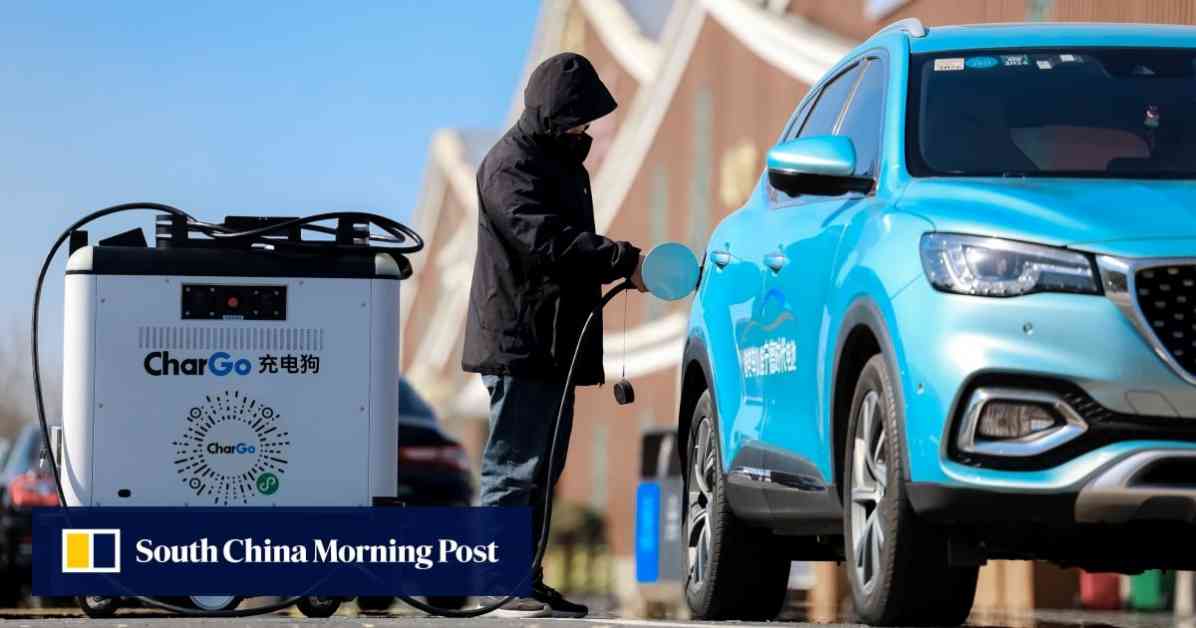Contemporary Amperex Technology Company (CATL), the world’s biggest maker of electric vehicle (EV) batteries, is looking to become a top technology provider in China’s green energy sectors as it gets ready to wrap up the world’s largest stock offering of the year so far. The group formed CharGo last year to work on mobile storage and charging, as well as testing robots for EVs to expand its business. These robots can be used in areas where there’s a shortage of EV charging stations, or when they’re all taken up, or even if they’re just too far away. Drivers can reserve the robot-charging service by giving them a call.
“We don’t want to be known only as a battery manufacturer or battery solution provider,” said CharGo CEO Kevin Xu in a recent interview. “We aim to be pioneers in the new-energy industry and build a closed-loop ecosystem that covers everything from power generation to storage to conversion.” The unit, based in Shanghai, hopes to lead the market in this sector and plans to deploy between 5,000 and 15,000 units worldwide over the next two years, starting in over 100 cities in mainland China. CharGo currently has over a hundred charging robots in action, mostly for demo projects.
The size of China’s mobile EV charging robot market could hit 50 billion yuan (US$6.9 billion) by 2030, making up at least 20 percent of the country’s overall EV charging market, according to Xu. He also mentioned that CharGo aims to expand into foreign markets by the latter half of 2026, setting its sights on Southeast Asia, the Middle East, and Europe. CATL, headquartered in Ningde, Fujian province, China, could rake in as much as HK$41 billion (US$5.3 billion), including upsize options, from its initial public offering (IPO) in Hong Kong, the city’s biggest since January 2021. The company listed in Shenzhen will reveal the final IPO details on Monday and start trading on Tuesday. Its EV battery business was its largest in 2024, making up nearly 70 percent of total revenue last year. Energy storage system batteries made up 16 percent. Despite a 9.7 percent drop in revenue due to lower global lithium prices, net profit increased by 15 percent from the previous year to 50.8 billion yuan in 2024.



























